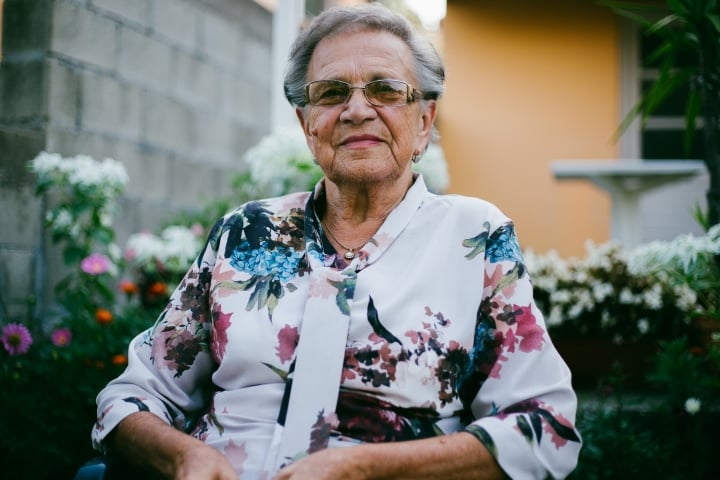
Aging in Place with Community Support
Friday, May 28th, 2021
Given a choice, most of us would choose to ‘age in place’ as we get older, remaining in our own homes and communities for as long as possible and potentially avoiding living out later years in a nursing home.
The COVID-19 pandemic has only underscored this. Over the past 15 months, the virus ravaged nursing homes in the U.S., with 38%[1] of all COVID-19 deaths happening in facilities. Systemic issues with the way we provide care to older adults and individuals with disabilities also became abundantly clear: COVID-19 was particularly devastating in nursing homes with people from communities of color where the facility had a large bed count, meaning many residents.[2] Higher staffing (meaning more care workers like nurses) in nursing homes was associated with fewer cases and fewer deaths[3], but nursing homes with high populations of people of color and high bed counts often suffered from low staffing, and thus higher death rates.
In addition to the desire to age in place, many Virginians may now be looking for alternatives to nursing home placement, but accessing the services that help with daily living can be challenging. Below, we’ve highlighted what you should know about home care.
How Those with Lower Incomes Can Get Help
Those with higher incomes can generally pay out-of-pocket for the care they need, but such isn’t the case for individuals with lower incomes. Fortunately, you can find help through Virginia’s Medicaid Managed Care Program, which offers a home and community-based services (HCBS) program for those who qualify.
Identifying the Right Kind of Home Care
There are two main categories of home care: skilled care and in-home support. Skilled care includes registered nurses, physical therapists, speech therapists, and occupational therapists. It must be ordered by a doctor. In-home support includes shopping, meal prep, and housekeeping as well as assistance with needs like bathing, dressing, and feeding.
To qualify for HCBS/in-home support, you must meet income and asset tests set up by Medicaid. In general, an individual can only own a small number of things (besides their house and car) and have income below the cost of the care. There are complicated rules regarding assets that include exemptions for certain assets (including additional protections for community spouses). There are also complicated rules around income and the possible need to “spend down” your income each month to have Medicaid cover your care.
Get Help Navigating the System
Although the program provides an alternative to nursing home care, the complicated rules around Medicaid can make it difficult for people to access in-home support. If you run into difficulties with the application process or need assistance with the ongoing care you are receiving, you can contact an independent Medicaid Managed Care Advocate through the Office of the State Long-Term Care Ombudsman in the Virginia Department for Aging and Rehabilitative Services, 804-663-7821 or a legal aid attorney at 1-866-534-5243 to ask for assistance.
While nursing homes have their place, they aren’t always the best fit for every person who needs help. By providing care to individuals in their own home, the HCBS model can be a great alternative – something most people prefer and a safer option when it comes to infection prevention.
As VPLC supports continued funding and support of the HCBS program, we’re glad to see that the American Rescue Plan included funding to support HCBS in Virginia and that new legislation introduced at the federal level, the Home and Community-Based Access Act, would allow individuals to access the care they want to age in their own homes.
[1] https://www.kff.org/coronavirus-covid-19/issue-brief/factors-associated-with-covid-19-cases-and-deaths-in-long-term-care-facilities-findings-from-a-literature-review/
[2] Id.
[3] Id.
